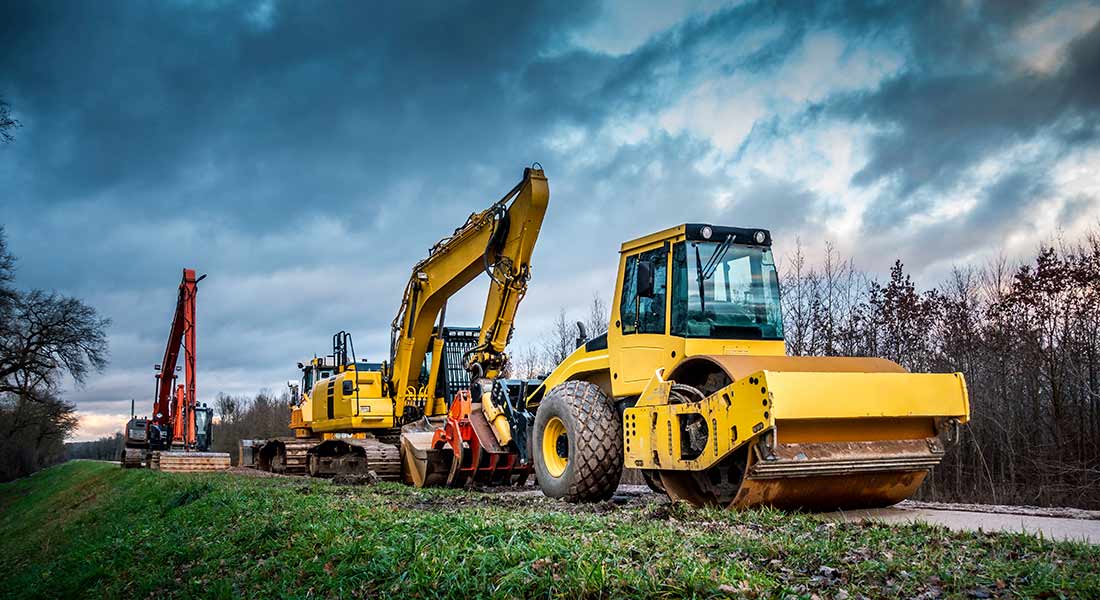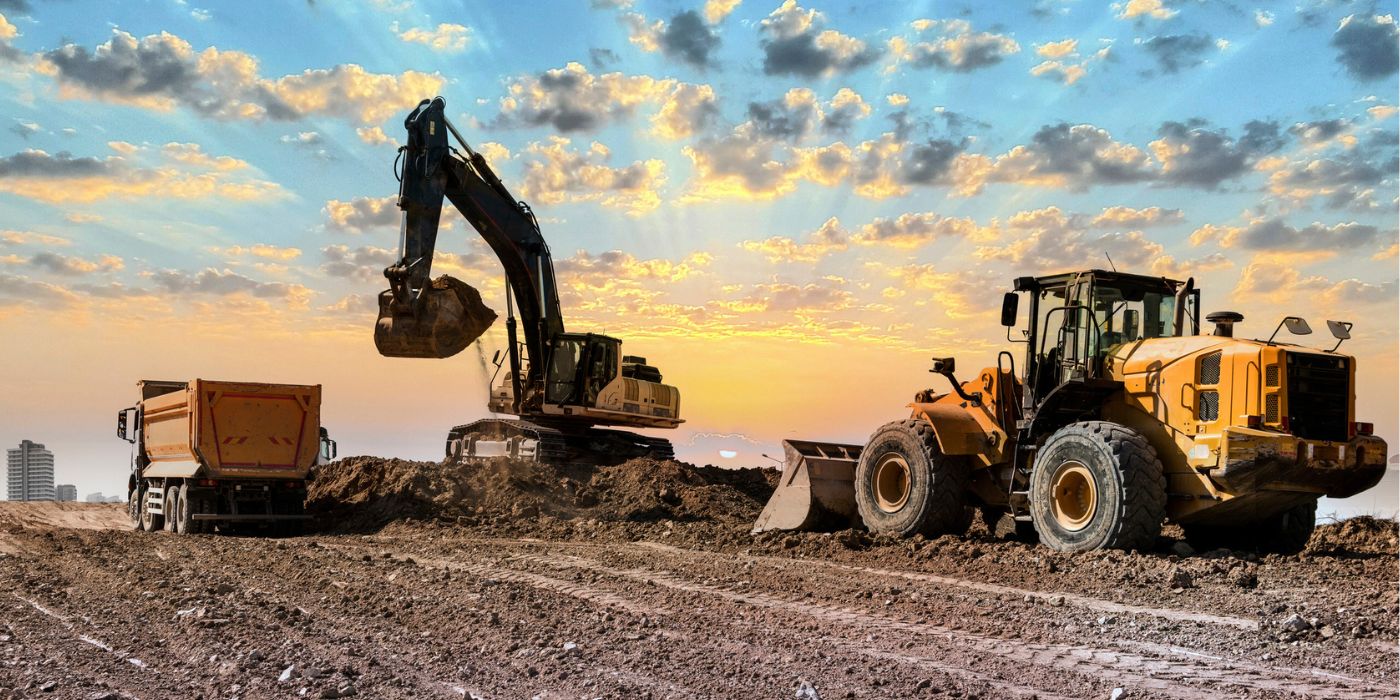Mini Excavator Rental in Tuscaloosa AL: Compact and Powerful Equipment for Tiny Jobs
Mini Excavator Rental in Tuscaloosa AL: Compact and Powerful Equipment for Tiny Jobs
Blog Article
Exploring the Financial Benefits of Leasing Construction Devices Compared to Having It Long-Term
The decision in between having and renting out building and construction tools is critical for monetary monitoring in the sector. Renting out offers instant cost financial savings and functional versatility, enabling business to allocate sources much more efficiently. In comparison, possession comes with significant lasting economic dedications, consisting of maintenance and depreciation. As service providers consider these alternatives, the influence on capital, job timelines, and innovation access comes to be increasingly considerable. Comprehending these nuances is important, especially when considering just how they line up with specific job demands and economic strategies. What factors should be focused on to guarantee optimum decision-making in this complicated landscape?

Price Contrast: Leasing Vs. Having
When examining the economic implications of possessing versus leasing building devices, a comprehensive price contrast is important for making educated choices. The option between renting out and owning can substantially influence a business's lower line, and comprehending the linked expenses is essential.
Renting building and construction equipment generally involves lower ahead of time costs, permitting companies to designate capital to various other functional demands. Rental prices can collect over time, possibly exceeding the expense of ownership if equipment is needed for an extended duration.
Conversely, owning building and construction tools calls for a considerable preliminary investment, together with continuous prices such as insurance policy, depreciation, and funding. While ownership can result in long-lasting financial savings, it additionally locks up capital and might not provide the very same degree of adaptability as leasing. In addition, possessing devices necessitates a commitment to its usage, which might not always line up with job needs.
Inevitably, the choice to own or rent out must be based on a thorough analysis of certain job needs, financial capability, and long-term calculated objectives.

Upkeep Responsibilities and expenses
The choice in between possessing and renting building devices not just includes financial factors to consider yet likewise includes recurring maintenance expenditures and duties. Owning equipment needs a considerable dedication to its upkeep, which includes regular inspections, repair work, and potential upgrades. These duties can swiftly build up, causing unanticipated costs that can strain a budget plan.
In comparison, when renting equipment, upkeep is commonly the obligation of the rental company. This setup allows professionals to prevent the economic problem related to wear and tear, along with the logistical obstacles of organizing fixings. Rental agreements frequently consist of provisions for upkeep, indicating that professionals can concentrate on completing jobs as opposed to bothering with equipment condition.
Furthermore, the diverse variety of devices offered for rental fee enables business to choose the most recent designs with innovative technology, which can improve efficiency and productivity - scissor lift rental in Tuscaloosa Al. By going with services, organizations can stay clear of the long-term liability of devices devaluation and the linked upkeep headaches. Eventually, examining maintenance expenditures and obligations is crucial for making a notified choice concerning whether to rent out or possess building and construction equipment, significantly affecting general task costs and operational performance

Devaluation Effect On Possession
A considerable factor to take into consideration in the decision to have building tools is the influence of devaluation on overall ownership expenses. Depreciation stands for the decrease in worth of the tools gradually, affected by factors such as use, damage, and developments in innovation. As tools ages, its market price decreases, which can substantially affect the proprietor's monetary position when it comes time to trade the equipment or sell.
For building and construction firms, this depreciation can translate to substantial losses if the equipment is not utilized to its max potential or if it comes to be out-of-date. Proprietors must account for depreciation in their economic estimates, which can result in greater total costs compared to renting. Additionally, the tax effects of depreciation can be complex; while it may supply some tax obligation benefits, these are typically offset by the truth of minimized resale worth.
Eventually, the worry of depreciation stresses the significance of understanding the long-term economic dedication associated with having construction equipment. Companies must carefully evaluate just how usually they will certainly make use of the tools and the prospective monetary influence of devaluation to make an educated decision regarding possession versus renting out.
Financial Flexibility of Renting
Leasing construction devices supplies considerable financial versatility, permitting business to allocate resources extra successfully. This adaptability is especially vital in a sector characterized by fluctuating task demands and differing work. By deciding to lease, services can stay clear of the significant capital investment needed for buying tools, protecting capital for various other functional needs.
Furthermore, renting out devices makes it possible for companies to customize their devices options to details job needs without the lasting dedication linked with ownership. This means that services can quickly scale their equipment inventory up or down based on current and anticipated project demands. about his Subsequently, this versatility minimizes the threat of over-investment in equipment that might come to be underutilized or obsolete over time.
One more financial benefit of renting is the possibility for tax advantages. Rental settlements are often taken into consideration business expenses, enabling prompt tax reductions, unlike devaluation on owned equipment, which is spread over a number of years. scissor lift rental in Tuscaloosa Al. This instant expenditure acknowledgment can additionally boost a firm's cash setting
Long-Term Task Factors To Consider
When evaluating the long-lasting needs of a building company, the choice between renting out and owning equipment ends up being much more complicated. Trick elements to take into consideration consist of job period, regularity of use, and the nature of upcoming tasks. For jobs with prolonged timelines, purchasing tools might appear helpful as a result of the capacity for lower general costs. Nevertheless, if the tools will certainly not be made use of consistently across projects, click for more possessing might cause underutilization and unnecessary expense on storage, insurance policy, and maintenance.
The construction market is evolving rapidly, with new tools offering enhanced efficiency and safety and security features. This flexibility is especially valuable for services that deal with diverse tasks requiring different kinds of devices.
Additionally, monetary stability plays a vital function. Owning tools frequently involves significant funding investment and devaluation issues, while renting out permits more foreseeable budgeting and cash money circulation. Inevitably, the selection in between renting and having ought to be aligned with the tactical purposes of the construction organization, thinking about both anticipated and current project needs.
Verdict
In final thought, leasing construction devices supplies substantial monetary benefits over long-term possession. Ultimately, the choice to lease rather than very own aligns with the vibrant nature of building and construction jobs, allowing for flexibility and accessibility to the newest equipment without the economic burdens connected with ownership.
As devices ages, its market worth lessens, which can considerably impact the proprietor's monetary position when it comes time to offer or trade the devices.
Renting building and construction tools provides substantial monetary adaptability, allowing companies to assign sources much more successfully.Furthermore, leasing devices enables companies to tailor their devices options to certain task demands without the long-lasting commitment connected with ownership.In verdict, renting building tools uses considerable monetary advantages over lasting ownership. Eventually, the decision to rent out rather than own aligns with the dynamic nature of building and construction tasks, enabling for adaptability and accessibility to the newest tools without see the monetary problems associated with possession.
Report this page